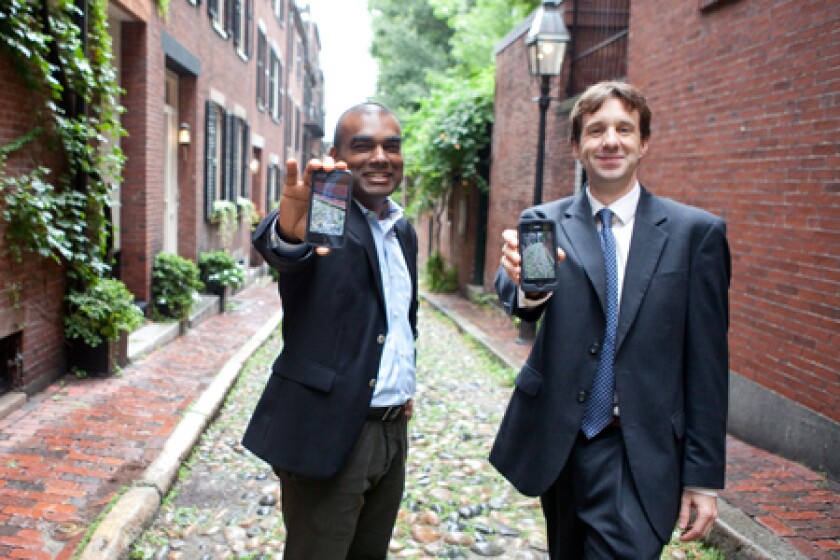

When it comes to government innovation -- especially during tough times -- some of the best ideas come from thinking small. That’s the notion behind the Mayor’s Office of New Urban Mechanics, a unique Boston IT agency focused on finding innovative ways to deliver services and increase citizen engagement. It’s like an in-house R&D shop for the city, and the two-person team that leads the office -- Nigel Jacob (left) and Chris Osgood -- says that a flexible focus on micro-projects is key. Most of the projects cost about $10,000, which may be subsidized through a combination of city operations funds and contributions from nonprofit and private partners. “In order to get these products up and running as quickly as possible and start showing value as quickly as possible, we try to make them as bite-sized as possible,” Jacob says.
But Jacob and Osgood’s small-scale focus has yielded big results. Their signature product, a maintenance-request app called Citizens Connect, has been downloaded more than 16,000 times and replicated in more than 20 countries since it was launched in 2009.
Osgood, an urban policy guy with a Harvard MBA, and Jacob, a Canadian IT developer, both started as City Hall fellows in 2006 and eventually became advisers to Mayor Thomas Menino. When Menino conceived the idea of a nimble IT solutions shop in 2010, he knew Osgood and Jacob were the right people for the job. Now, the duo is tasked with developing partnerships within and outside of City Hall to quickly produce new apps and programs. “Come to us, pitch your idea, work with us and let’s see if it could work,” Jacob says. The office currently has 100 pitches to sift through. Working with small development firms, nonprofits and colleges, New Urban Mechanics is managing almost 20 projects that address needs in infrastructure, education and what Osgood and Jacob call “participatory urbanism.”
What the New Urban Mechanics office shows is that investing in small, calculated risks can have a major impact. The work of Jacob and Osgood could fundamentally change the way citizens interact with cities. “I think people are beginning to recognize there’s a whole host of opportunities that can shift the way government serves its constituents,” says Osgood.
— Tina Trenkner
In this clip, Osgood and his Boston colleagues explain how GIS technology is helping the city's engagement efforts.









